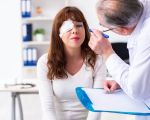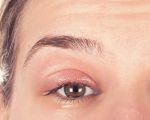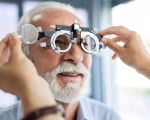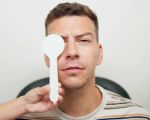Local Eye Doctors Offering Specialized Eye Tests
- Why Specialized Eye Tests Matter
- Types of Specialized Eye Tests Offered
- Choosing the Right Eye Doctor for Specialized Tests
- How to Prepare for Your Eye Exam
- The Benefits of Regular Eye Exams
Why Specialized Eye Tests Matter
Eye health is often overlooked until vision problems become severe, but regular eye exams are crucial to maintaining healthy eyesight. While standard eye tests check for basic vision problems like nearsightedness or farsightedness, specialized eye tests help detect more complex conditions that might not show up during a routine exam. These tests are especially important for individuals who may be at higher risk for certain eye diseases, such as glaucoma, macular degeneration, or diabetic retinopathy.
Local eye doctors offering specialized eye tests can help identify early warning signs of these conditions, often before symptoms appear. This allows for timely intervention and treatment, which can prevent permanent damage to your vision. Whether you're concerned about your eye health or just want a more comprehensive exam, specialized tests are essential for thorough care.
Types of Specialized Eye Tests Offered
When you visit a local eye doctor for specialized eye tests, you can expect a variety of procedures depending on your specific needs and concerns. Here are some common specialized eye tests that may be offered:
1. Retinal Imaging
Retinal imaging is a non-invasive test that captures detailed images of the retina, allowing eye doctors to detect early signs of diseases such as macular degeneration, diabetic retinopathy, and glaucoma. This test helps monitor the health of the retina, which is crucial for clear vision.
2. Visual Field Test
A visual field test measures the full range of your vision, including peripheral vision. It’s commonly used to detect glaucoma and other conditions that affect the optic nerve. If you experience blurred vision or blind spots, this test can help identify potential problems.
3. OCT (Optical Coherence Tomography)
OCT is an advanced imaging technique that provides cross-sectional images of the retina. This test is especially helpful for diagnosing conditions like macular degeneration and glaucoma, as it can capture changes in the retinal layers that may not be visible through other tests.
4. Corneal Topography
Corneal topography is a specialized test that maps the surface of your cornea. It’s often used for patients considering LASIK surgery or those with conditions like keratoconus. This test helps doctors understand the shape and thickness of your cornea to ensure proper treatment.
5. Color Vision Test
A color vision test assesses your ability to distinguish between different colors. It’s essential for detecting color blindness or color vision deficiencies, which can be genetic or develop with age or disease.
Choosing the Right Eye Doctor for Specialized Tests
When seeking specialized eye tests, it’s important to choose an eye doctor who is not only experienced but also equipped with the latest diagnostic tools. Here are some tips for selecting the best local eye doctor for your needs:
1. Look for Experience and Expertise
Ensure that the eye doctor has a proven track record in conducting specialized eye tests. Optometrists or ophthalmologists who are well-versed in conditions like glaucoma, macular degeneration, or diabetic retinopathy will be able to provide accurate diagnoses and recommend appropriate treatments.
2. Check for Advanced Equipment
Specialized eye tests require advanced diagnostic equipment, such as OCT machines or retinal cameras. Check that the eye doctor’s clinic is equipped with the latest technology to ensure you receive a comprehensive and accurate evaluation.
3. Ask About Reviews and Referrals
Ask friends, family, or online communities for recommendations for local eye doctors. Reading reviews or getting referrals from trusted sources can help you find an eye doctor who is known for their skill and care.
How to Prepare for Your Eye Exam
Preparation is key to making your eye exam as effective as possible. While specialized eye tests may be a bit more involved than a routine checkup, following these tips will ensure a smooth visit:
1. Bring a List of Current Medications
Some eye conditions may be linked to other health issues or medications, so bring a list of any current medications you’re taking, including eye drops or treatments for diabetes, hypertension, or other chronic conditions.
2. Wear Comfortable Clothing
Some tests, such as visual field tests or retinal imaging, may require you to sit or stand for extended periods. Wear comfortable clothing that won’t restrict your movement.
3. Avoid Wearing Contact Lenses
If you wear contact lenses, avoid wearing them on the day of your exam. Some specialized eye tests, such as corneal topography, may be affected by the presence of contact lenses, so it’s best to give your eyes a break before the test.
The Benefits of Regular Eye Exams
Regular eye exams with a local eye doctor offering specialized eye tests provide numerous benefits, including:
1. Early Detection of Eye Diseases
The sooner you catch an eye problem, the easier it is to treat. Many eye diseases, such as glaucoma or diabetic retinopathy, can progress without noticeable symptoms. Specialized eye tests allow your eye doctor to spot these issues early, preventing vision loss.
2. Maintaining Optimal Vision
Regular eye exams help ensure that your vision stays sharp and clear. With proper eye care and timely intervention, you can prevent or manage conditions that might affect your daily life.
To find the best local eye doctors offering specialized eye tests, visit Eye Docs for expert recommendations and tips on how to select the right specialist for your needs.








